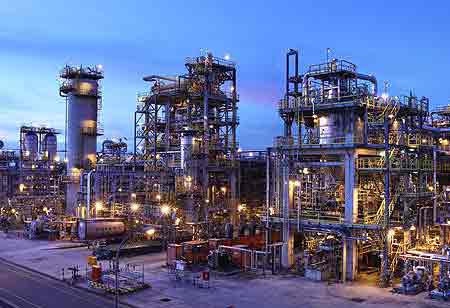

Thank you for Subscribing to Energy Business Review Weekly Brief

A trader attempts to generate a fake position in oil refining by simultaneously acquiring crude oil futures and selling petroleum product futures via a spread.
An oil refinery is a manufacturing facility that converts or refines crude oil into useful petroleum products, including diesel, gasoline, and heating oils such as kerosene. Oil refineries are effectively the second stage in the crude oil production process after crude oil extraction upstream, and refinery services are regarded as a downstream part of the oil and gas business. Distillation is the initial phase in the refining process, in which crude oil is heated to severe temperatures to extract the various hydrocarbons. Oil refineries are critical to the manufacturing of transportation and certain other fuels. Once separated, the crude oil components can be supplied to various businesses for various reasons. Lubricants may be supplied to industrial facilities directly after distillation, while other products must be refined further before they can be sold to the end user. Large refineries can handle hundreds of thousands of barrels of crude oil daily. "Distillation is the initial phase in the refining process, in which crude oil is heated to severe temperatures to extract the various hydrocarbons." The refining process is generally called the "downstream" sector in the business, whereas raw crude oil production is called the "upstream" sector. The phrase downstream refers to oil being transferred down the product value chain to an oil refinery to be processed into fuel. The actual selling of petroleum products to certain other firms, governments, or private persons is also included in the downstream stage. An oil refinery is open 24 hours a day, 365 days a year, and employs many people. Every year, refineries go offline or shut down for a few weeks to perform seasonal maintenance and other repairs. A refinery may take up the space of several hundred football fields. Crack, or crack spread, is a trading method to build a refining margin in energy futures. Crack is a key predictor of profits for oil refining firms, and crack enables refining businesses to hedge against the risks related to crude oil and petroleum products. A trader attempts to generate a fake position in oil refining by simultaneously acquiring crude oil futures and selling petroleum product futures via a spread.
I agree We use cookies on this website to enhance your user experience. By clicking any link on this page you are giving your consent for us to set cookies. More info

However, if you would like to share the information in this article, you may use the link below:
https://www.energybusinessrevieweurope.com/cxoinsight/what-you-need-to-know-nwid-918.html